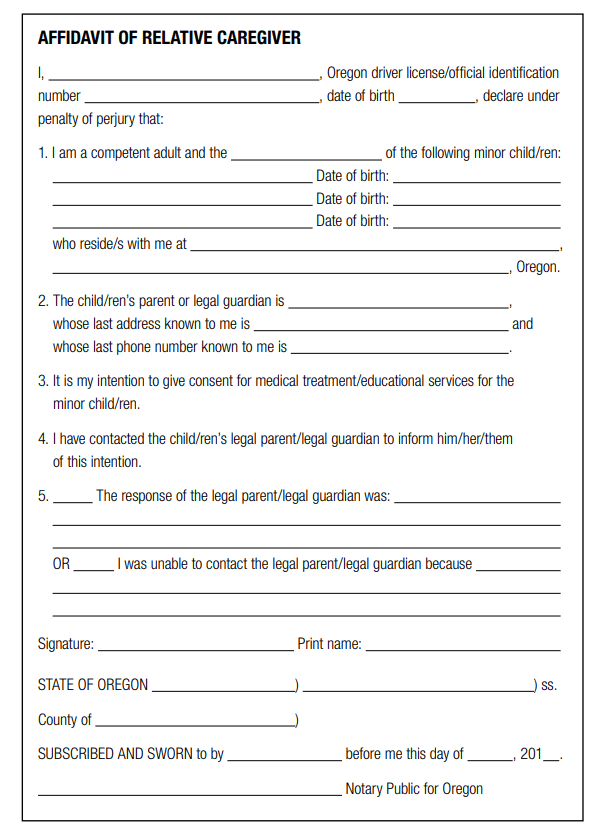
More Power to You
These documents can strengthen your hand as caregiving grandparents.
No lawyer needed.*
These documents authorize you to care for a grandchild and make certain decisions for that child you. Having one will smooth the way at schools, with doctors and medical care or emergencies. They create a legal relationship for you as the grandparent to care for your grandchild.
What is a “temporary power of attorney?”
Oregon has laws that allow people to authorize other people to handle various kinds of affairs on their behalf. In other words, your child could give you, the grandparent, some parental control. The usual way to authorize someone else to handle things is through a “power of attorney.” Oregon law provides a special temporary power of attorney parents can use to give grandparents the right to take care of their children for up to six months at a time. It doesn not take away any parental rights of parents.
Key Takeaway: A temporary power of attorney must be signed by at least one the child’s legal parent(s).
What is a “relative caregiver affidavit?”
This is a document grandparents can use for authority to get medical or educational services for a child living with them, when parents do not consent. Under Oregon law, a grandparent who becomes responsible for the care of a grandchild when parents are away may be able to get medical and dental care for the child and enroll the child in school without the parents’ approval in some situations. The grandchild must already be living with the grandparent. The grandparent also must try in good faith to contact at least one of the parents to ask for consent for medical care or for admission to school, or be able to explain why he or she would not give you consent.
Key Takeaway: A relative caregiver affidavit is used when the child’s grandparents are unavailable, or refuse to sign a Temporary Power of Attorney.
*Educational information provided here should not be used as a substitute for seeking sound legal advice. Your situation may require legal assessment or advice to meet your individual needs.
How to Get a
Temporary Power of Attorney
1. Ask the child’s parent(s) if they would be willing to give you temporary rights to provide care for the child.
2. Fill out the form and have it signed and “notarized.”
The form is fairly simple and straight forward. Ideally, the child(ren)’s parents will fill out the form. It must have one of the parents’ signatures. They should not sign the form until they are with the notary public. To find a “notary public” check with a bank, credit union, a real estate or law office. A notary may charge $10 -20.
3. You keep the Power of Attorney document.
You should keep the signed, notarized Temporary Power of Attorney. The child’s parents can keep a copy. Keep in mind that this kind of power of attorney can be “revoked” by the parent(s) at any time. It does not give you the right to keep the children from either parent.
Temporary Power of Attorney
Frequently Asked Questions
Do I need a lawyer to get a Power of Attorney?
What authority will I have?
What if the child’s parents want to end—revoke—the power of attorney?
How is the PoA ended?
Can a PoA be renewed after six months?
I have more than one grandchild. Does every child need a separate Power of Attorney?
How to Get a Relative Caregiver Affidavit?
1. Make a a good faith effort to contact the child’s parents.
2. Get this form.
3. Fill out the form, and have it “notarized.”
A “notary public” is a person. Notaries can be found in most banks, credit unions, real estate offices, and law firms. Keep in mind that the notary is usually someone doing other work at the place of business. So just ask at the front desk if a notary public person is available. You will need to have legal identification such as a driver’s license.
A notary may charge $10 -20.
4. Keep the affidavit handy. Take to the doctor, or for school enrollment.
Relative Caregiver Affidavit
Frequently Asked Questions
Do I need a lawyer to get a Relative Caregiver Affidavit?
What authority will I have?
When does a Relative Caregiver Affidavit expire?
What is an affidavit?
What is a notary public?


